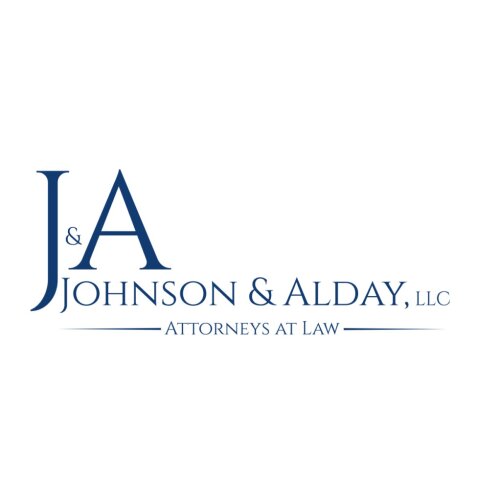Best Bad Faith Insurance Lawyers in Georgia
Share your needs with us, get contacted by law firms.
Free. Takes 2 min.
Or refine your search by selecting a city:
List of the best lawyers in Georgia, United States
About Bad Faith Insurance Law in Georgia, United States
Bad faith insurance occurs when an insurance company fails to uphold its duty to act honestly and fairly toward its policyholders. In Georgia, policyholders have the right to expect their insurer to honor valid claims and handle them promptly and transparently. When an insurer unreasonably refuses to pay a legitimate claim, delays payment, or offers less than what is owed without a valid reason, it may be considered bad faith. Georgia law provides remedies to consumers who have been treated unfairly by their insurance providers.
Why You May Need a Lawyer
Insurance companies have established procedures and experienced legal teams focused on protecting their interests. If you have experienced any of the following situations, consulting an attorney with expertise in bad faith insurance claims may be essential:
- Unjust denial of your insurance claim without a valid explanation.
- Delays in the claim investigation or payment process.
- Receiving a settlement offer that is lower than the actual value of your losses.
- Intimidating or deceptive communication tactics from your insurer.
- Unexpected cancellation or non-renewal of your policy after a claim.
- Refusal to defend you in a lawsuit covered under your policy.
Legal guidance can help you understand your rights, gather evidence, negotiate with the insurer, and if necessary, file a lawsuit to recover damages.
Local Laws Overview
Georgia law specifically addresses insurance bad faith in several statutes:
- Georgia Statute OCGA § 33-4-6: This law provides that if an insurer refuses in bad faith to pay a covered loss within 60 days after a proper demand, the policyholder may recover additional damages, including attorney’s fees and up to 50 percent of the liability or five thousand dollars, whichever is greater.
- Insurers are required to conduct prompt, thorough investigations and offer reasons for claim denials.
- Bad faith laws apply to almost all types of insurance - auto, homeowners, health, and more.
- Policyholders must first send a formal written demand to their insurer to trigger potential bad faith penalties.
- The burden of proof for bad faith rests on the policyholder, requiring evidence that the insurer’s denial was unreasonable or without cause.
These laws are intended to protect consumers from unfair claim practices and to hold insurers accountable for dishonest conduct.
Frequently Asked Questions
What is considered bad faith by an insurance company in Georgia?
Bad faith can include refusing to pay or investigate a claim without a reasonable basis, delaying payment, offering an unfair settlement, or failing to communicate promptly with the policyholder.
What types of insurance policies are covered by Georgia bad faith laws?
Most insurance types are covered, including auto, homeowners, health, disability, life, and commercial policies. The precise details depend on the specific coverage and the policy terms.
How do I prove my insurance company acted in bad faith?
To prove bad faith, you generally need to show the insurer had no reasonable basis for its actions and that you suffered damages as a result. This may require documentation of the claim, policy language, correspondence with the insurer, and evidence of financial losses.
What damages can I recover if my insurer acted in bad faith?
Under Georgia law, you may recover the original claim amount, attorney’s fees, and additional damages of up to 50 percent of the liability or five thousand dollars, whichever is greater.
Do I have to send a written demand to my insurer?
Yes, Georgia law requires you to send a written demand to your insurer and allow 60 days for a response before pursuing a bad faith lawsuit.
How long do I have to file a bad faith insurance lawsuit in Georgia?
The statute of limitations can vary, but most contract actions, including bad faith claims, must be filed within six years from the date of the violation. However, it is important to seek legal advice right away to preserve your rights.
Can I handle a bad faith insurance claim without a lawyer?
While it is possible, bad faith claims can be complex and insurers often have significant resources. An experienced lawyer can help you build a strong case and negotiate on your behalf.
What should I do if I suspect bad faith?
Document all communications with your insurer, keep records of your claim, send a written demand, and consult with a lawyer experienced in insurance matters.
Are punitive damages available in Georgia bad faith cases?
Punitive damages are not typically available in statutory bad faith claims, but you may recover penalties and attorney’s fees as allowed by Georgia law.
Does bad faith apply if the insurer simply made a mistake?
Not all mistakes amount to bad faith. The insurer’s conduct must be unreasonably careless or intentionally unfair. Honest errors or good-faith disputes over coverage usually do not qualify.
Additional Resources
If you believe you have been treated unfairly by your insurance company, these resources can provide support:
- Georgia Office of Commissioner of Insurance and Fire Safety: Oversees insurance companies and handles consumer complaints.
- Georgia Bar Association: Offers lawyer referral services and information about attorneys specializing in bad faith and insurance law.
- United Policyholders: A nonprofit organization providing key information and resources for policyholders.
- Neighborhood Legal Services: Some regions in Georgia provide legal aid for those with limited income.
Next Steps
If you believe your insurer has acted in bad faith, consider taking these steps:
- Review your insurance policy and gather all relevant documentation, including claim forms, denial letters, and correspondence with the insurer.
- Send a formal written demand to your insurance company, outlining the basis for your claim and requesting a fair resolution.
- Allow the insurer up to 60 days to respond, as required by Georgia law.
- If the insurer does not resolve your claim or continues to act unfairly, consult with a lawyer experienced in bad faith insurance cases. Legal professionals can evaluate your situation, explain your rights, and help determine whether litigation or settlement is appropriate.
- Consider filing a complaint with the Georgia Office of Insurance Commissioner if you believe regulations have been violated.
Taking prompt action and seeking qualified legal help can make a significant difference in protecting your rights and obtaining the compensation you deserve.
Lawzana helps you find the best lawyers and law firms in Georgia through a curated and pre-screened list of qualified legal professionals. Our platform offers rankings and detailed profiles of attorneys and law firms, allowing you to compare based on practice areas, including Bad Faith Insurance, experience, and client feedback.
Each profile includes a description of the firm's areas of practice, client reviews, team members and partners, year of establishment, spoken languages, office locations, contact information, social media presence, and any published articles or resources. Most firms on our platform speak English and are experienced in both local and international legal matters.
Get a quote from top-rated law firms in Georgia, United States — quickly, securely, and without unnecessary hassle.
Disclaimer:
The information provided on this page is for general informational purposes only and does not constitute legal advice. While we strive to ensure the accuracy and relevance of the content, legal information may change over time, and interpretations of the law can vary. You should always consult with a qualified legal professional for advice specific to your situation.
We disclaim all liability for actions taken or not taken based on the content of this page. If you believe any information is incorrect or outdated, please contact us, and we will review and update it where appropriate.
Browse bad faith insurance law firms by city in Georgia
Refine your search by selecting a city.














